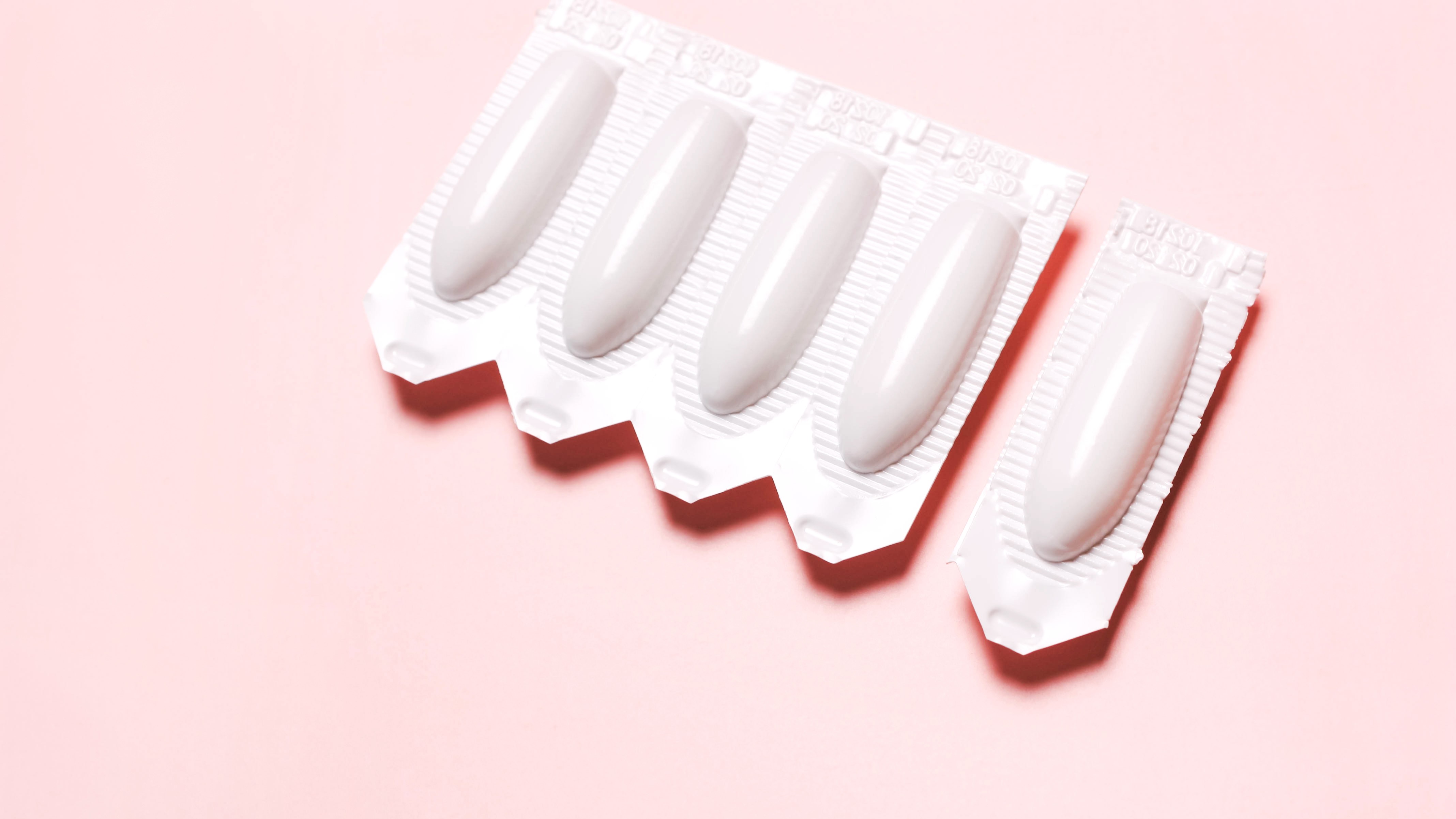What causes thrush? How to prevent recurring vaginal yeast infections
We spoke with medical experts about the most common causes and symptoms of thrush


Yeast infections are an unfortunate part of having a vagina. But what causes thrush? And what can we do to prevent it? We spoke to the experts about how to recognise and deal with a yeast infection swiftly.
There's more to looking after you vagina than knowing your kegel exercises and having a regular pap smear test. The clothing you wear, how you use sex toys and the food you eat can all affect the health of your vagina, and if you're not looking after yourself correctly, can lead to vaginal yeast infections—aka, thrush.
Thrush is a fungal infection caused by a bacterial imbalance in the vagina. Usually, the good bacteria inside the vagina outnumber harmful bacteria and help to maintain a healthy pH balance. But occasionally, harmful bacteria can grow and begin to dominate, which causes the symptoms of a yeast infection.
Thrush can be a clear sign of how to tell if something is wrong down there. However, rest assured thrush is incredibly common for women and people with vaginas. And, there are a number of ways you can treat it and prevent recurring thrush. We spoke with an expert to determine what causes thrush, what the signs and symptoms of a yeast infection are, and the best treatment and preventative techniques for avoiding yeast infections.
What causes thrush?
“The vaginal microbiome constantly undergoes fluctuations during a woman’s life,” says Dr Zahra Ameen, Consultant Gynaecologist and Obstetrician at the Cadogan Clinic. “Lactobacillus has a very important role in protecting women from an overgrowth of other types of bacteria and organisms which can cause unpleasant symptoms, for example, smelly discharge caused by thrush and bacterial vaginosis.”
Lactobacilli are the most abundant vaginal bacteria in women, producing lactic acid to maintain the vaginal pH at a stable 3.5—4.5. However, if the pH of the vagina increases, causing it to become more alkaline, the quality or amount of lactobacilli can decrease allowing other bacteria to multiply.
The bacteria that causes thrush is called candida albicans, a genus of yeasts that live on the body. If candida is able to dominate the vaginal microbiome it can produce some unpleasant results. You may also see a yeast infection or thrush referred to as candidiasis, vaginal candidiasis, vulvovaginal candidiasis or candidal vaginitis.
Sign up to our free daily email for the latest royal and entertainment news, interesting opinion, expert advice on styling and beauty trends, and no-nonsense guides to the health and wellness questions you want answered.
A number of factors can affect this imbalance, from your diet to how you wash sex toys (see our guide on how to clean sex toys the body-safe way if you're unsure).
The most common causes of thrush include:
- Tight clothing
- Diet
- Antibiotics
- Poor personal hygiene
1. Tight Clothing
Wearing tight clothing made from fabric that isn't breathable can cause an overgrowth of candida. This is because the bacteria thrive in moist, warm environments. For some, wearing period underwear, sanitary pads and panty liners for long periods of time can contribute to this. As can sitting in a wet bathing suit or bikini bottoms for too long.
To avoid a yeast infection, change your pad and period pants regularly (see our best period underwear round-up for our top recommendations). You should also opt for underwear made from breathable natural fibers like cotton, silk, linen, and bamboo. Always change into dry clothes as soon as possible after swimming, too.
2. Diet
Thrush can also be caused by a diet consisting of inflammatory, bacteria-disrupting foods that are processed, high in sugar and contain hormones and antibiotics. For example, alcohol can also disrupt your vaginal microbiome and cause recurring yeast infections.
Some experts recommend regulating the lactobacilli in your body by incorporating probiotic and prebiotic foods into your diet. Foods for a healthy vagina include fermented products like kimchi, sauerkraut, natural yogurt, tempeh and kombucha. However, if those don’t sound particularly appealing to you, you could take immunity supplements with probiotic and prebiotic properties to stabilize your gut instead.
3. Antibiotics
Many medical professionals also recommend taking a probiotic supplement in tandem with antibiotics. The purpose of antibiotics is to kill off bacterial infections in the body, but in doing so, these medicines also attack many healthy bacteria, including lactobacilli.
This can leave room for candida albicans to take off. Taking a probiotic supplement while on a course of antibiotics can boost the good bacteria in your body and prevent this from happening. This can help avoid issues like thrush and gastrointestinal problems.
4. Poor personal hygiene
Yeast infections can also be caused by poor personal hygiene—whether that's washing sex toys incorrectly, using soaps or lubes that irritate the vagina or using period products that change the pH of your vagina. "Normal vaginal bacterial flora is used to describe all bacterial species that are commonly found in the vaginal biotope of healthy women," says Dr Ameen, "The vagina is self-cleaning. and as it cleans itself, it produces a white or clear discharge."
Dr Ameen adds that hormonal changes during the menstrual cycle affect the amount of discharge the vagina produces, but unless you're experiencing symptoms such as pain during sex, a sore vagina, itching, a foul-smelling discharge, or burning, the vagina needs little maintenance other than washing daily with mild soap and water.
Washing your hands regularly and washing your vagina using only non-irritating products can help with avoiding imbalances. Washing with heavily perfumed products, touching yourself with dirty hands and douching can all affect your vaginal flora. Using body-safe lubricants can keep your vaginal flora in check too. Products like baby oil and moisturizer aren't meant for use inside the vagina and using them can cause thrush. Instead, invest in the best lubes. And, use pH-balanced wipes or UV sterilizing units to make sure any harmful bacteria is eradicated before you reach for your sex toys again.
Using tampons can also change the pH of your vagina as they absorb menstrual blood and dry out the vagina. Instead, switch to a pair of period pants, try using a menstrual cup or opt for organic cotton liners instead of tampons and thick plastic pads.

What are the symptoms of thrush?
Thrush is a common problem for people with vaginas, and the symptoms are easy to identify. Symptoms of thrush include:
- Lumpy white vaginal discharge
- Very watery discharge
- Itchy scaly body rash with discharge
- Itching and irritation of the vulva, particularly the inner labia
- Swollen and red vulva
- Soreness or stinging inside the opening of the vagina
- Burning during sex or when you pee
Does thrush cause bleeding?
Some people confuse the symptoms of thrush with other conditions, such as common STIs, pelvic inflammatory disease and bacterial vaginosis. Thrush can cause persistent itching which can be incredibly frustrating. It’s a bad idea to scratch the delicate skin of your vulva or to rub it with towels, regardless of the temporary relief this might bring. Itching can lead to broken skin and in some cases, bleeding. This can be very painful to endure so experts advise using a topical cream to relieve itching.
Thrush can also cause you to bleed from your vagina. Light spotting can occur due to bacterial infection and you may have to use a panty liner to protect your underwear. A yeast infection shouldn't cause heavy bleeding and you should not be bleeding from your vagina after your other symptoms have subsided.
You may be more prone to bleeding if you experience recurrent yeast infections as this can cause sores and tears in the vaginal tissue. However, bleeding may also be a sign of another underlying condition. If you're spotting, bleeding heavily or bleeding outside of your period, make an appointment with your GP, a sexual health professional or an OB/GYN to get checked out.
Does thrush smell?
A yeast infection can smell if your hygiene is at a poor standard, but this isn’t usually a symptom of thrush. Yeast infections don’t cause bad odors, unlike the majority of other infections of the vagina.
However, thrush can often be confused with or mistaken for bacterial vaginosis. BV is an infection of the vagina that affects one in three women and is similar to thrush as it's caused by an imbalance of bacteria inside the vagina. However, its symptoms differ. Bacterial Vaginosis is characterized by a foul, fishy-smelling discharge that can be very watery and grey in color. If you’re experiencing vaginal discharge with an unpleasant smell, make an appointment with a sexual health professional or with your doctor to investigate this further.

Is thrush contagious?
Thrush itself isn’t contagious, but the bacteria that causes thrush can be passed from one person to another. Although uncommon, it's possible for thrush to be passed on from one partner to another during unprotected sex. Thrush symptoms for people with penises are similar to those we’ve mentioned previously, including discharge, irritation, itching and pain. If you have thrush or suspect that you have a yeast infection, it's best to avoid having sex until you've completed a course of treatment and the infection has cleared up. Sex may be painful and this can cause lasting pain inside the vagina or around the head of the penis.
Thrush also affects other parts of the body, such as the throat, armpits and groin. Oral thrush isn’t considered to be contagious but if you happen to have a weakened immune system or are taking a medication that compromises a balanced microbiome, you may be more likely to succumb to an infection of candida bacteria. Children are generally at a higher risk of having thrush passed to them and thrush can be passed on from a mother to baby while breastfeeding. If you’re concerned about thrush and breastfeeding, speak to your doctor about your options.
Does thrush go away on its own?
Thrush can go away on its own but is best treated to avoid inflammation, discomfort and to return the vagina’s natural flora to a healthy pH. The vagina is generally quite good at self-regulating—it cleans itself and maintains a naturally acidic environment without much help from us. However, the symptoms of thrush are there to tell us that something is wrong and if left untreated, they can be incredibly uncomfortable and potentially cause long-term damage to the vagina.
You can do plenty of things to create a hospitable environment in your body for lactobacilli to flourish, such as avoiding yeasts by opting for healthy flour alternatives, preservatives and refined sugar. Taking a probiotic supplement or eating probiotic foods and taking good care of your vagina both externally and internally can also help too.
If you're unsure what a normal vagina looks like or are worried about your vaginal health more generally, contact a qualified health professional to discuss your concerns.

The best treatments for yeast infections
Thrush can be treated simply and effectively using over-the-counter options depending on your preference and what's advised for you.
The most common treatments for thrush include:
- Capsules—an oral capsule pill containing anti-fungal fluconazole that restores the balance of bacteria in your body and fights off the yeast causing your thrush.
- Pessary—a single application treatment for thrush that should only be used following medical advice. A pessary pill is inserted into the vagina at night using an applicator. It often contains the anti-fungal agent Clotrimazole to fight off bacteria causing thrush
- Anti-fungal cream—an external cream applied to the external affected areas of the vagina. It can relieve itching and soothe instantly, and fight off the bacterial infection.
Thrush should clear up within seven to fourteen days of starting treatment. Visit your local drugstore and speak with a pharmacist for further advice on what treatment is best for you.
Preventative treatments for thrush also include:
- Cleaning your vulva gently with body-safe products
- Wearing loose-fitting underwear made from natural fibers
- Changing your underwear regularly in hot weather
- Taking a probiotic containing Lactobacillus rhamnosus
- Using antibiotics appropriately and only when necessary
- Avoiding prolonged exposure to moisture and dampness
- Eating healthily and avoiding processed foods, sugars and alcohol
When to see a doctor about recurring thrush
If you're worried about recurring yeast infections and suffer from bacterial infections and imbalances more often than seems normal, it may be time to see your doctor. Mostly, thrush can be self-managed, but if your experience of it seems uncommonly painful or frequent, there could be a larger issue to address. You should also seek advice if your over-the-counter treatment has failed to improve or eradicate your symptoms within one to two weeks.
If you're experiencing the symptoms of a yeast infection for the first time, it's also advised to visit your doctor or sexual health professional. Should you suspect you might be pregnant, it's also advisable to make an appointment for a health check. New mothers and the immunocompromised should always check in with their doctor about thrush symptoms.
Dr Ameen advises practicing safe sex with condoms to prevent bacterial infections and to regularly attend your pap smear test. A yeast infection is no cause for concern, but its symptoms are commonly manifested as a result of many other gynecological issues, so it's always wise to be in contact with a qualified professional to ensure your health is at its best.
w&h thanks Dr Zahra Ameen, Consultant Gynaecologist and Obstetrician at the Cadogan Clinic for her expertise and commentary for this article.
Emilie Lavinia is a writer, entrepreneur and women’s wellbeing advocate. She is passionate about femtech, closing the gender health gap and campaigning for education and transparency across mental, physical and sexual health. Emilie presents All Being Well – a series that investigates the concept of wellness, good health according to experts and what it means to ‘be well’. She has a decade of experience as a journalist, editor and brand strategist and is the founder of four separate organisations that champion women’s health, marginalised communities and LGBTQ+ people.
